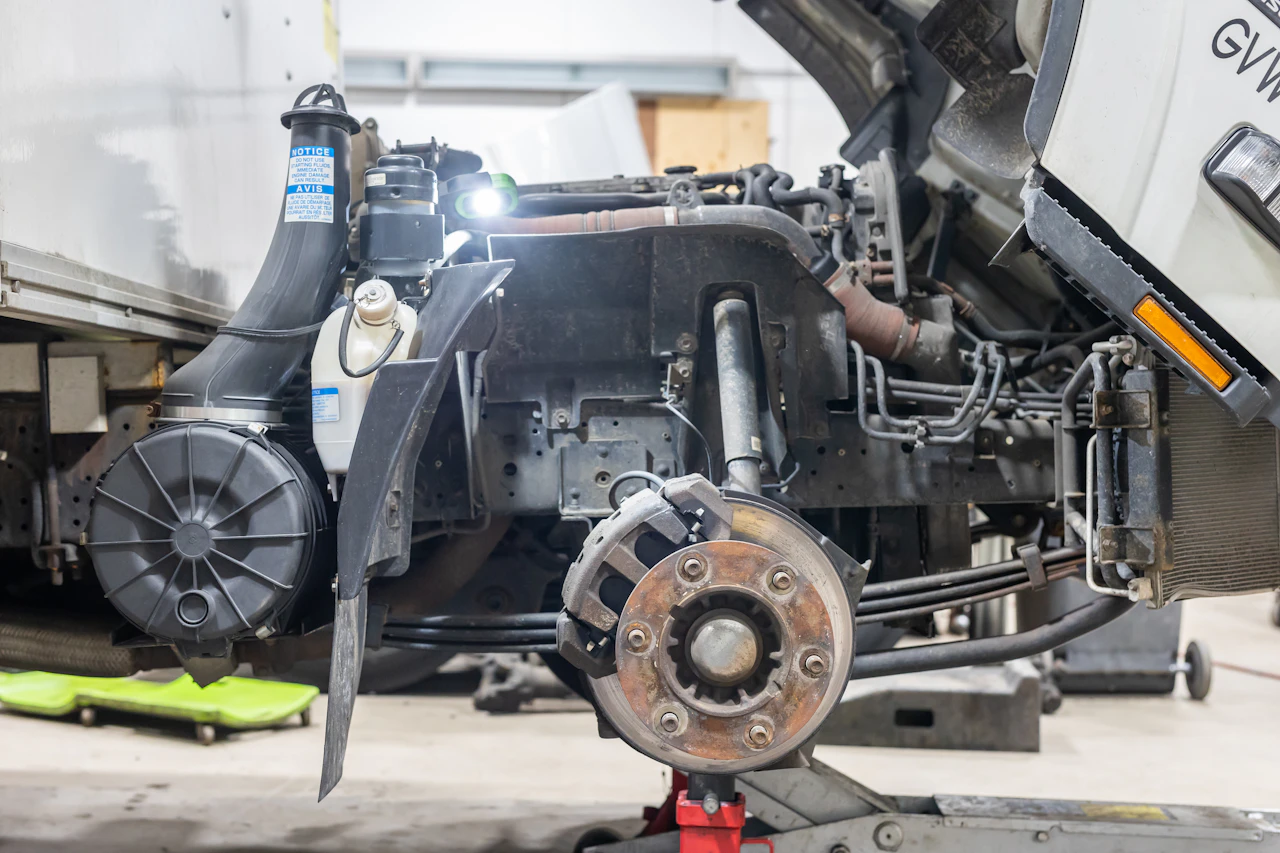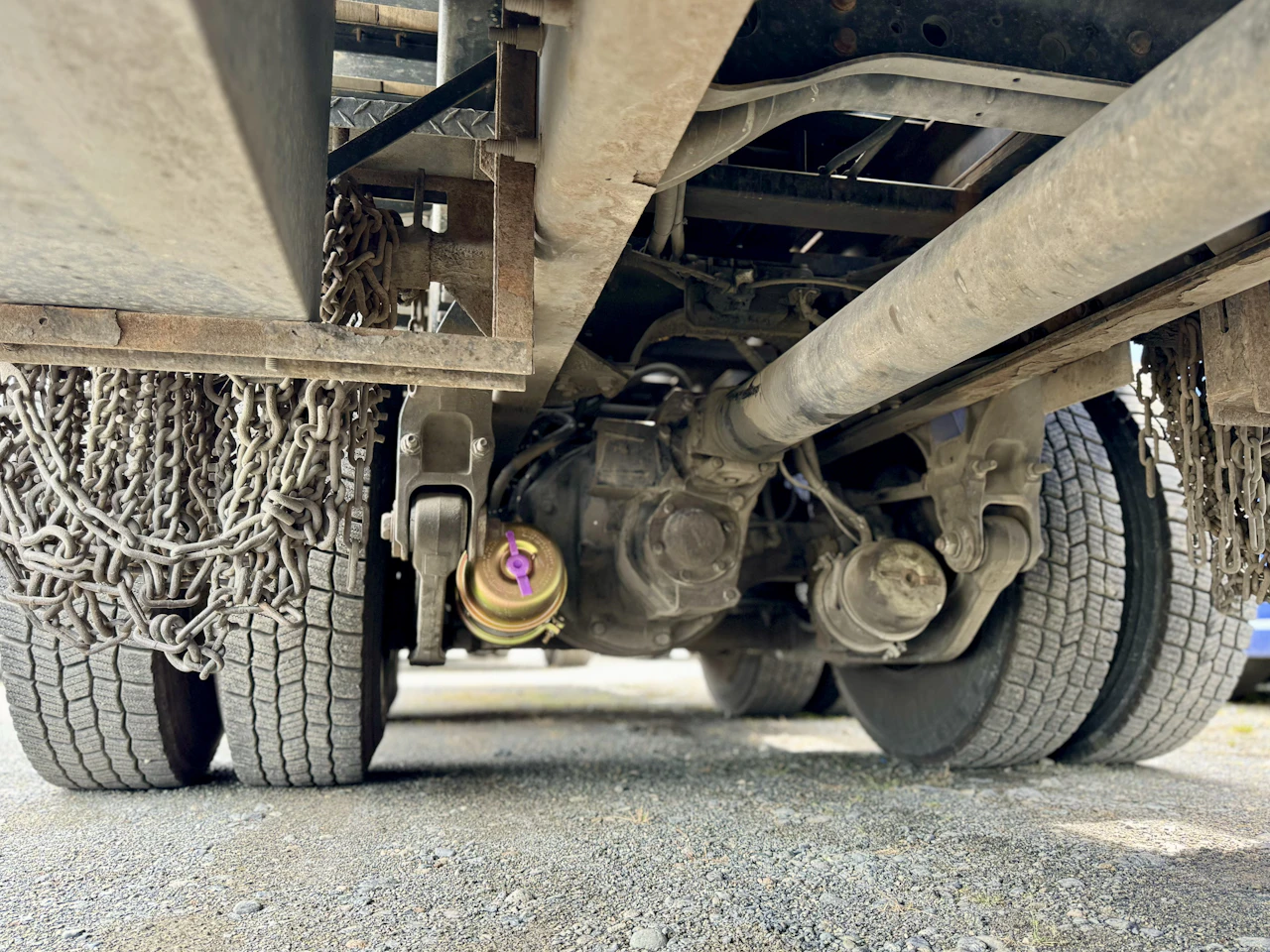Engine overheating is a common and serious issue in heavy-duty trucks, leading to costly repairs and downtime. The truck coolant system is crucial in regulating engine temperature and preventing overheating. This article delves into the components, functions, and maintenance of the coolant system, highlighting key aspects such as coolant leaks, low-speed idle (LSI) conditions, and the importance of a properly functioning radiator, water pump, and other components.
The Role of the Coolant System
The primary purpose of the truck coolant system is to transfer heat away from the engine to maintain optimal operating temperatures. This system includes several critical components: the radiator, water pump, thermostat, heater core, fan clutch, and coolant additives. Each element works harmoniously to ensure efficient heat dissipation and prevent engine overheating.
Components of the Coolant System
Radiator: The radiator is the central component of the cooling system, designed to transfer heat from the coolant to the outside air. Coolant flows through the radiator, cooled by air passing through the radiator's fins. A properly functioning radiator is essential to prevent overheating, especially during high-load conditions.
Water Pump: The water pump circulates coolant throughout the engine and radiator. It is typically driven by a belt connected to the engine's crankshaft. A failing water pump can lead to inadequate coolant flow, resulting in engine overheating.
Thermostat: The thermostat regulates the flow of coolant based on the engine's temperature. It remains closed when the engine is cold, allowing it to reach operating temperature quickly. Once the engine warms up, the thermostat opens to allow coolant to circulate and maintain a stable temperature.
Heater Core: The core functions similarly to a radiator but is inside the vehicle's cabin. It uses hot coolant to provide heat to the interior. Any blockages or leaks in the heater core can affect the overall efficiency of the cooling system.
Fan Clutch: The fan clutch controls the cooling fan, which draws air through the radiator. It engages and disengages based on the engine temperature and vehicle speed. The fan clutch ensures adequate airflow to cool the radiator at low speeds or idle conditions.
Common Coolant System Issues
Coolant Leaks: Coolant leaks can occur due to damaged hoses, a failing water pump, or a cracked radiator. Leaks lead to a loss of coolant, reducing the system's efficiency and causing the engine to overheat. Regular inspections and pressure tests can help identify and fix leaks promptly.
Low-Speed Idle (LSI) Conditions: During low-speed idle conditions, such as heavy traffic or extended idling, the engine generates less airflow through the radiator. This situation can strain the cooling system, making components like the fan clutch and water pump critical for proper cooling.
Coolant Flush: Over time, coolant can become contaminated with debris and lose effectiveness. Regular coolant flushes as part of preventive maintenance, help remove contaminants and ensure the coolant's efficiency in heat transfer.
Coolant Additives: Coolant additives, including antifreeze/coolant, are vital in preventing coolant freezing and boiling. They also contain corrosion inhibitors to protect the engine and cooling system components from rust and scale buildup.
Diagnostic and Maintenance Practices
Temperature Gauge Monitoring: Constant monitoring of the temperature gauge can provide early warning signs of overheating. If the gauge indicates higher-than-normal temperatures, inspecting the coolant system immediately is essential.
Engine Codes/Diagnostics: Modern trucks are equipped with diagnostic systems that generate engine codes related to coolant system performance. Regularly checking these codes can help identify issues such as a failing thermostat or water pump before they lead to severe overheating.
Pressure Test: Conducting a pressure test on the coolant system helps detect leaks that might not be visible during a visual inspection. This test involves pressurizing the system and checking for pressure drops, indicating a leak.
Understanding the Cooling Process
Coolant Circulation: The cooling process begins with the water pump pushing coolant through the engine block. As the coolant absorbs heat from the engine, it flows to the radiator, releasing the absorbed heat into the air. The cooled coolant is then recirculated back into the engine to repeat the process.
Radiator Efficiency: The radiator's efficiency in dissipating heat is crucial. Blockages or damage to the radiator fins can significantly reduce its ability to cool the engine. Regular cleaning and inspections ensure that the radiator performs optimally.
Fan Clutch Operation: The fan clutch engages the cooling fan when necessary. Natural airflow through the grille is usually sufficient at high speeds to cool the radiator. However, at low speeds or during idling, the fan clutch activates the fan to maintain proper airflow and cooling.
Thermostat Functionality: The thermostat's ability to open and close at the correct temperatures is vital for maintaining engine temperature. A stuck thermostat can either prevent coolant from flowing into the engine, causing it to overheat, or prevent the engine from reaching optimal operating temperature, affecting performance.
Preventive Maintenance for Coolant Systems
Regular Inspections: Routine inspections of the coolant system components, including hoses, clamps, and connections, can prevent unexpected failures. Look for signs of wear, leaks, and corrosion.
Coolant Quality: Regularly checking the coolant's quality and level ensures its effectiveness in heat transfer. A hydrometer can help determine the coolant's freeze and boiling points, indicating if it needs replacement.
Coolant Flush Intervals: Following the manufacturer's recommended intervals for coolant flushes helps maintain the system's efficiency. Fresh coolant improves heat transfer and replenishes the additives that protect against corrosion and scale buildup.
Proper Coolant Mixture: Ensuring the correct mixture of antifreeze and water is essential. Too much water can lower the boiling point, while too much antifreeze can reduce heat transfer efficiency. Typically, a 50/50 mix is recommended for most heavy-duty trucks.
Addressing Common Problems
Radiator Blockages: Radiators can become clogged with debris over time, reducing their efficiency. Flushing the radiator and using a cleaner can help remove blockages and improve cooling performance.
Water Pump Failures: Water pumps can wear out and develop leaks. Replacing a failing water pump promptly is crucial to prevent overheating and further engine damage.
Thermostat Malfunctions: A faulty thermostat can cause either overheating or underheating. Replacing a malfunctioning thermostat ensures the coolant system operates correctly.
Coolant Leaks: Identifying and repairing coolant leaks quickly prevents the system from losing coolant and helps maintain efficiency. Familiar sources of leaks include hoses, clamps, and the radiator.
Advanced Diagnostic Tools
Infrared Thermometers: Infrared thermometers allow technicians to measure the radiator's temperature and other components without direct contact. This tool helps identify hotspots and verify that the cooling system is functioning correctly.
Cooling System Pressure Tester: A pressure tester can simulate the operating pressure of the cooling system, helping to identify leaks that are not visible under normal conditions. This tool is essential for comprehensive diagnostics.
Diagnostic Software: Advanced diagnostic software can read engine codes and provide detailed information about the coolant system's performance. This technology helps technicians pinpoint issues quickly and accurately.
Conclusion
Maintaining a robust truck coolant system is crucial for preventing engine overheating and ensuring the longevity of heavy-duty vehicles. Regular inspections, timely repairs, and preventive maintenance practices such as coolant flushes and pressure tests are essential for optimal cooling system performance.
For fleet managers and business owners looking to ensure the reliability of their fleet's coolant systems, National Fleet Management in Charlotte, NC, offers comprehensive maintenance and repair services for Fleet, RV, and BUS vehicles. Contact National Fleet Management at 704-252-6948 to schedule an appointment and keep your engines running smoothly.

